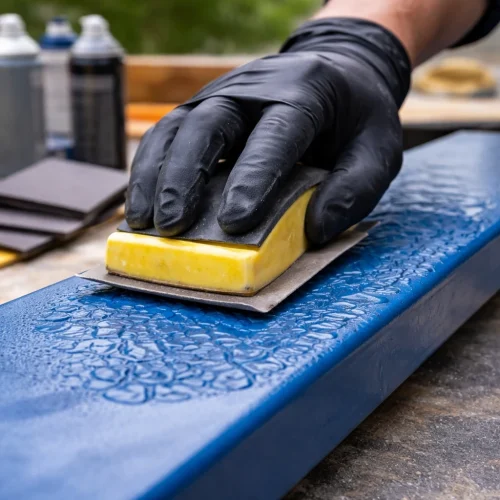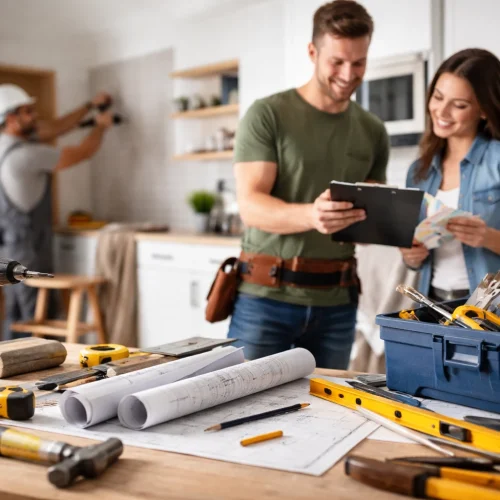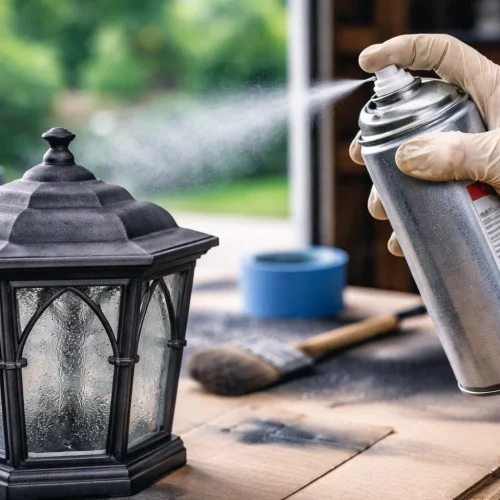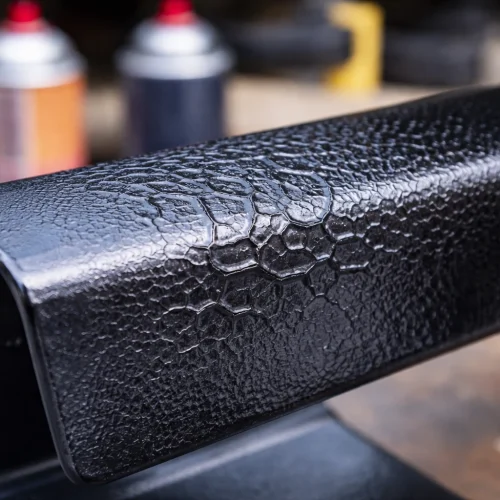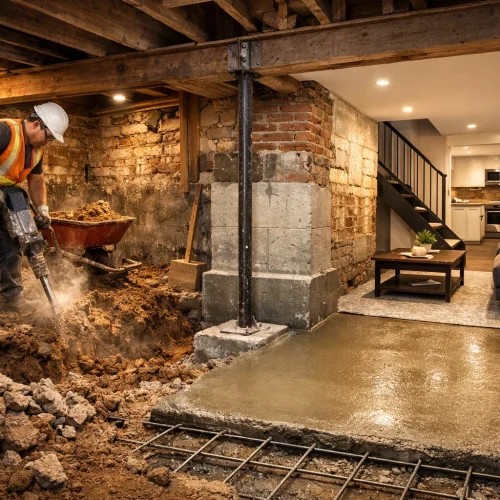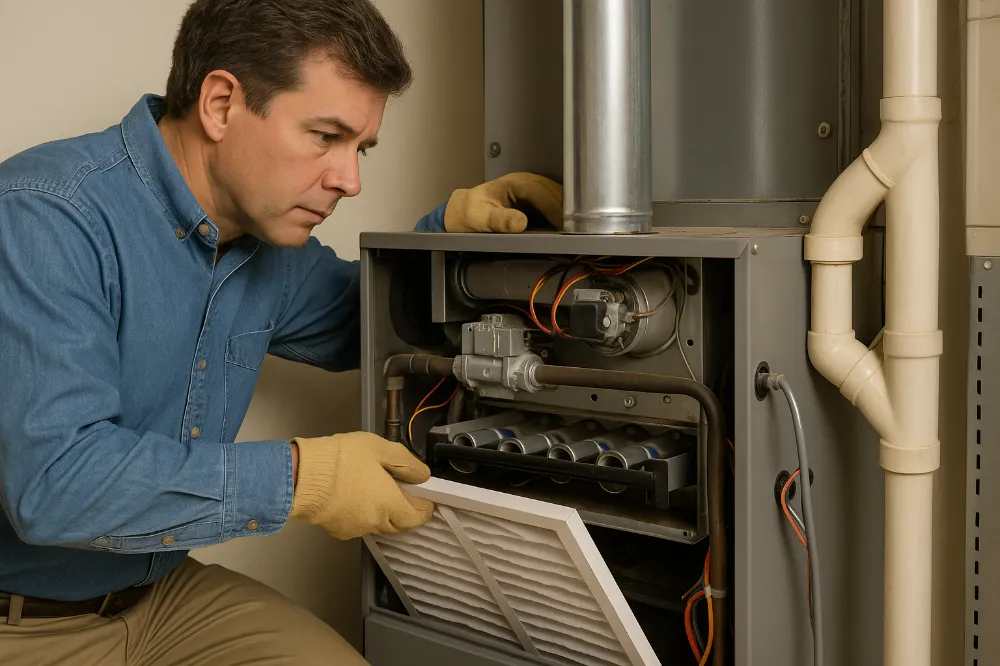
As cooler weather arrives in Charlotte, your furnace becomes one of the most important systems in your home. The last thing any homeowner wants is a surprise breakdown on a cold night. The good news? With the right maintenance, you can keep your furnace running efficiently and avoid most unexpected issues. Here’s how to take care of your heating system before problems start.
In a city like Charlotte, where temperatures can fluctuate dramatically in late fall and early spring, preparing early can make all the difference. Proactive maintenance not only saves you money on repairs but also helps your system operate at peak efficiency, lowering your energy bills and keeping your family comfortable all season long.
1. Replace or Clean Air Filters Regularly
One of the simplest and most effective ways to prevent furnace trouble is to replace or clean your air filters every one to three months. When filters become clogged with dust and debris, your furnace has to work harder to pull air through, which can lead to overheating and system strain. In Charlotte’s humid climate, filters can collect moisture and dust more quickly, so regular replacement is key to smooth operation and good indoor air quality.
A clean filter not only protects your furnace but also keeps allergens, pet dander, and pollen from circulating through your home. If you notice reduced airflow or dust buildup around vents, it’s a sign that your filter may already be working overtime. Keeping a few spare filters on hand makes it easy to swap them out when needed—especially during high pollen seasons or if you have pets that shed.
2. Keep Vents and Registers Clear
Blocked air vents can cause uneven heating and put unnecessary pressure on your furnace. Make sure all registers are open and free from furniture, rugs, or curtains. Consistent airflow helps your furnace maintain proper efficiency and prevents overheating or short cycling.
It’s also worth periodically vacuuming vents and registers to remove dust and debris that may have settled in over time. When airflow is blocked, your system struggles to maintain temperature balance, which can cause hot and cold spots throughout your home. By ensuring vents stay clear, you allow your furnace to operate smoothly and extend its lifespan.
3. Check the Thermostat
If your home never seems to reach the temperature you’ve set, your thermostat might be miscalibrated or have dying batteries. Changing the batteries once a year and checking for accurate readings can prevent performance issues that mimic furnace failure.
You can also take this opportunity to upgrade to a programmable or smart thermostat. These devices automatically adjust temperature settings based on your schedule, helping you save energy and avoid unnecessary furnace strain. Simple habits—like setting the temperature lower while you’re asleep or away—can reduce wear and tear over time while still keeping your home comfortable.
4. Inspect the Furnace Area
Your furnace needs room to “breathe.” Keep the area around your unit clear of clutter, boxes, and cleaning supplies. This reduces fire risk and ensures proper airflow to the system. Also, check for signs of moisture or corrosion, which can signal larger issues that need professional attention.
If your furnace is located in a basement or utility room, it’s easy for storage items to creep close to the unit. Make it a routine to maintain at least a few feet of clearance around it. A quick visual inspection every month can help you spot unusual rust, condensation, or strange odors early—often preventing minor issues from escalating into costly repairs.
5. Schedule Annual Professional Maintenance
While DIY care is essential, nothing replaces the expertise of a trained HVAC technician. A professional can clean internal components, check for carbon monoxide leaks, inspect electrical connections, and ensure your system is running safely. Annual tune-ups help catch small issues before they turn into major repairs.
If you’re looking for trusted local service, scheduling routine maintenance with a Charlotte furnace repair specialist is one of the best ways to protect your system. Local technicians understand the unique demands of Charlotte’s changing weather and can help optimize your system for both comfort and efficiency. Regular service also keeps your manufacturer’s warranty valid and gives you peace of mind that your furnace will be ready when you need it most.
6. Listen and Look for Warning Signs
Unusual noises, frequent cycling, or a sudden spike in energy bills can all indicate that your furnace needs attention. Addressing these signs early can prevent costly breakdowns and extend the lifespan of your system.
Grinding, squealing, or banging sounds can point to mechanical problems such as worn belts or loose parts. If you notice cold spots, burning odors, or the furnace running more often than usual, don’t ignore them. Taking action right away can turn a potential major repair into a simple fix and ensure your heating system continues running efficiently throughout the season.
7. Keep Ductwork Clean
Over time, dust and debris can accumulate in your home’s ductwork, restricting airflow and making your furnace work harder. Periodic duct cleaning improves air quality and reduces strain on your heating system.
Dirty ducts can also harbor allergens and mold, especially in Charlotte’s humid environment. Having them professionally cleaned every few years can improve airflow, reduce household dust, and enhance the performance of your entire HVAC system. Clean ducts also help maintain a more consistent temperature throughout your home, making it easier to keep every room comfortable.
Final Thoughts
Preventive maintenance is the key to keeping your furnace reliable through Charlotte’s chilly winter months. A few simple habits—like changing filters, keeping vents clear, and scheduling regular tune-ups—can save you from unexpected repairs and keep your home warm all season long. For dependable, expert help with inspections or repairs, reach out to a trusted HVAC team to ensure your system is ready for anything the season brings.
By staying proactive, you not only extend the life of your furnace but also create a safer, healthier home environment. Think of maintenance as an investment—not just in your comfort, but in your peace of mind every time the temperatures drop.
Frequently Asked Questions (FAQs)
Most homeowners should replace or clean their furnace filter every 1–3 months, depending on usage, pets, and air quality.
A clogged filter, blocked vents, or thermostat issues are common causes—check these before calling a technician.
Yes. Annual maintenance ensures safety, detects early problems, and keeps your system running efficiently year-round.
Schedule a tune-up in early fall before cold weather arrives to avoid breakdowns when you need heat most.
Unusual noises, uneven heating, frequent cycling, or rising energy bills are all warning signs your furnace may need attention.
Absolutely. Dust and debris in ducts restrict airflow, forcing your furnace to work harder and use more energy.
Use a high-quality filter that fits your unit’s specifications—MERV ratings between 8–12 are typically ideal for homes.
Proper clearance prevents fire hazards and allows your furnace to ventilate efficiently, reducing the risk of overheating.
With proper maintenance, most furnaces last between 15–20 years before needing replacement.
Turn it off and schedule an inspection—grinding, banging, or squealing can indicate mechanical issues that need professional repair.


